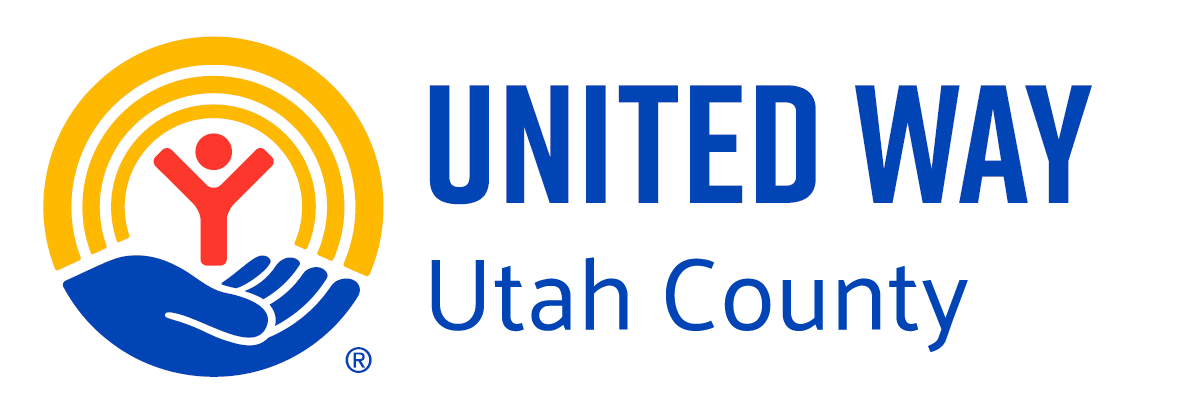Report on United Way’s COVID Community Reponse Fund Use – Press Release
FOR IMMEDIATE RELEASE
CONTACT:
Janie Brigman
Marketing Director
United Way of Utah County
801-691-5343 or
PROVO, Utah (May 11, 2020)–United Way of Utah County has partnered with local nonprofits to help families through COVID Community Response Fund. The fund has raised over $175,000 to support residents of Utah County.
The funds raised by the Response Fund are used to support local families’ financial self-sufficiency, education, and health, especially mental health. All three of these areas have been impacted by the economic downturn and social distancing caused by COVID-19.
Using data from United Way’s Utah 211, community surveys, and partnerships with other nonprofits, the funds raised are being distributed to United Way’s partner agencies who serve the short and long-term needs of individuals and families in Utah County.
A few of the nonprofits that have received funding from the United Way COVID Community Response Fund include:
Community Action Services and Food Bank
Funding expanded rent assistance programs to ensure safe housing for Utah County residents.
Over 30 clients will receive assistance with rent and late fee payments.
One example of people served by Community Action is a young couple who both were in a car accident and lost their jobs. Because they were behind in rent, they also had massive late fees which they couldn’t pay and were evicted. This is just one example of families who can be helped by the flexible rent assistance program supported by United Way’s COVID fund.
Family Support and Treatment Center
Donations help fund and expand mental health services like telehealth therapy sessions. Family Support has seen first hand the mental health effects from isolation and added stress of current events.
The Center is now offering telehealth options, as they transition their typical 150 therapy sessions a week to online sessions.
“While Family Support & Treatment Center has always placed a heavy emphasis on face-to-face connection with clients, during this time we have begun to offer telehealth services. As more and more people begin to feel the mental and emotional ramifications of a pandemic and subsequent social distancing, we anticipated (and have seen) an increased need and desire to access services, even via unconventional methods. Our team is currently accepting intakes for new ongoing clients, as well as providing one time crisis appointments for those in need,” said Janelle Christensen, Executive Director of Family Support & Treatment Center.
“Telehealth has not only enabled my existing clients and me to maintain a therapeutic relationship, allowing them to continue their healing journey, but has given many new clients access to mental health resources, who otherwise would not have been able to get help during this challenging and unpredictable time,” said Stuart Harper, Treatment Coordinator at Family Support.
“Using telehealth has been, I feel, essential during this time of quarantine. If I had to go this many weeks without being able to meet with my therapist, it would have made things so much harder. Things are hard enough as it is, therapy has definitely helped me to get through it, on top of the things we were working on already. Thank you for making sure the therapists have been available to us,” said one mother who uses Family Support’s services.
Recreation and Habilitation Services (RAH)
Funds distributed helped cover basic needs and provide support for adults with intellectual disabilities, many of whom may have a higher risk of contracting illness and having additional complications. During this time they are also at risk for increased depression and anxiety due to isolation.
A donation from Google was specifically used to help provide access to technology so the individuals can remain involved with group activities online.
Alpine House
Funds distributed provided food and safe housing for adults with mental illnesses, many of whom may have a higher risk of contracting illness and having additional complications. These individuals typically have limited options for housing and could otherwise become homeless.
“We are so grateful for the generous donations made by donors and businesses who help support families during this difficult time. United Way is not alone in this; we work with amazing partner agencies to serve our community’s changing needs, ” said Bill Hulterstrom, President and CEO of United Way of Utah County.
To learn more about United Way’s COVID Community Response Fund visit unitedwayuc.org/COVID-19. If you are looking for assistance please call Utah 211 or visit 211utah.org

